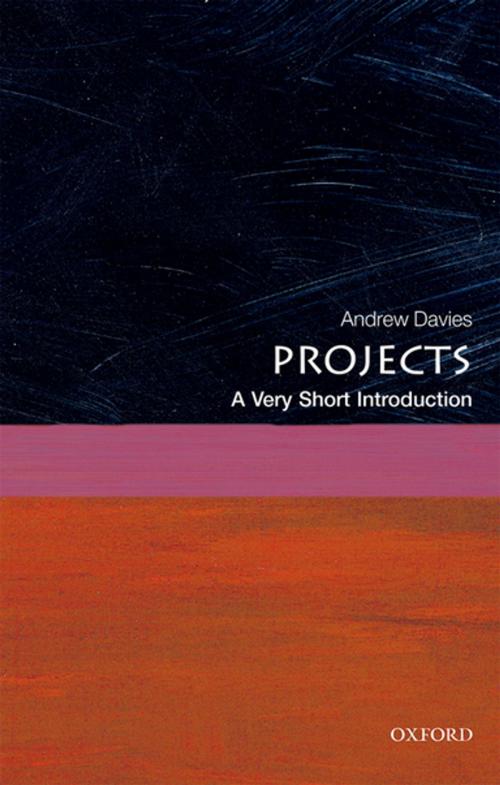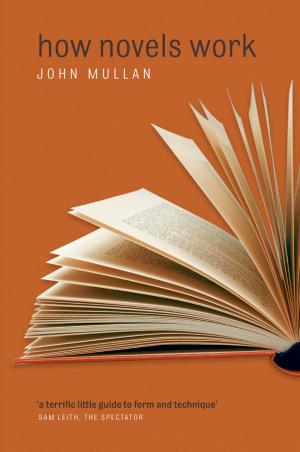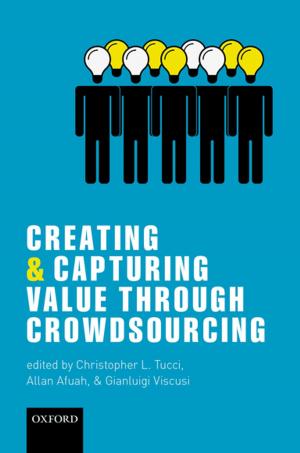Projects: A Very Short Introduction
Business & Finance, Management & Leadership, Planning & Forecasting| Author: | Andrew Davies | ISBN: | 9780191043406 |
| Publisher: | OUP Oxford | Publication: | October 19, 2017 |
| Imprint: | OUP Oxford | Language: | English |
| Author: | Andrew Davies |
| ISBN: | 9780191043406 |
| Publisher: | OUP Oxford |
| Publication: | October 19, 2017 |
| Imprint: | OUP Oxford |
| Language: | English |
What is a project? How are projects organized to deal with a complex, rapidly changing, and uncertain world? Why are projects the organization of the future? A project is a temporary organization and one-time process established to achieve a desired outcome. Projects range in size from small teams to large international joint-ventures and temporary coalitions of public and private organizations. What distinguishes projects from all other organizational activities - such as mass produced products and services - is that a project is finite in duration, lasting from hours, days, or weeks to years, and in some cases decades. Each project is disposable. It brings together people and resources to accomplish a goal and when the goal is accomplished, the organization disappears. When projects are complex, unpredictable, and changing, their plans have to be flexible and able to adjust to situations that cannot foreseen at the outset. In this Very Short Introduction Andrew Davies looks at how projects have developed since the industrial revolution to create the human-built world in which we live, work, and play. Considering some of our greatest endeavours such as the Erie Canal, Apollo Moon landing, Japanese product development, and Chinese ecocity projects, Davies identifies how projects are organized and managed to design and produce large and complex systems, cope with fast changing conditions, and deal with the immense uncertainties required to create breakthrough innovations in products and services. He concludes by considering how projects could be organized to address the challenges facing the post-industrial society of the 21st century. ABOUT THE SERIES: The Very Short Introductions series from Oxford University Press contains hundreds of titles in almost every subject area. These pocket-sized books are the perfect way to get ahead in a new subject quickly. Our expert authors combine facts, analysis, perspective, new ideas, and enthusiasm to make interesting and challenging topics highly readable.
What is a project? How are projects organized to deal with a complex, rapidly changing, and uncertain world? Why are projects the organization of the future? A project is a temporary organization and one-time process established to achieve a desired outcome. Projects range in size from small teams to large international joint-ventures and temporary coalitions of public and private organizations. What distinguishes projects from all other organizational activities - such as mass produced products and services - is that a project is finite in duration, lasting from hours, days, or weeks to years, and in some cases decades. Each project is disposable. It brings together people and resources to accomplish a goal and when the goal is accomplished, the organization disappears. When projects are complex, unpredictable, and changing, their plans have to be flexible and able to adjust to situations that cannot foreseen at the outset. In this Very Short Introduction Andrew Davies looks at how projects have developed since the industrial revolution to create the human-built world in which we live, work, and play. Considering some of our greatest endeavours such as the Erie Canal, Apollo Moon landing, Japanese product development, and Chinese ecocity projects, Davies identifies how projects are organized and managed to design and produce large and complex systems, cope with fast changing conditions, and deal with the immense uncertainties required to create breakthrough innovations in products and services. He concludes by considering how projects could be organized to address the challenges facing the post-industrial society of the 21st century. ABOUT THE SERIES: The Very Short Introductions series from Oxford University Press contains hundreds of titles in almost every subject area. These pocket-sized books are the perfect way to get ahead in a new subject quickly. Our expert authors combine facts, analysis, perspective, new ideas, and enthusiasm to make interesting and challenging topics highly readable.















